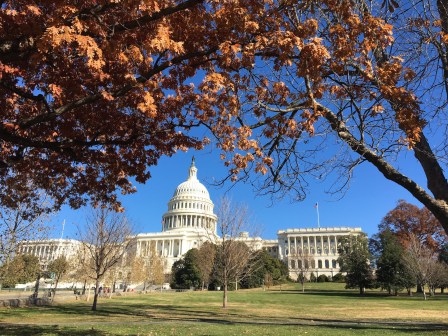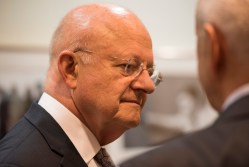Marsha Blackburn’s solution to fake news is really bad

One of President-elect Donald Trump’s top technology policy advisers, Rep. Marsha Blackburn recently proposed a radical solution to the societal problem that we now know as “fake news.” While Blackburn’s idea has garnered increased attention since she promoted the plan on CNN, lawyers tell CyberScoop that such a move would be laden with technical challenges and legal issues.
Blackburn, R-Tenn., believes that internet service providers, like Comcast and Verizon, should be responsible for scrubbing the internet of fake “news.” In principle, the strategy is strange in that it bypasses the role of social networks — where much of this content is shared. In the wake of these comments, a cloud of uncertainty looms over one of America’s most powerful industries.
“If anyone is putting fake news out there the ISPs have the obligation to in some way get that off the Web. And maybe it is time for these information systems to look to have some type of news editor that is doing some vetting on that — whether it is the Russians, the Chinese, the Iranians or whomever. You do not want that out there because it is fake news,” Blackburn told CNN’s Wolf Blitzer in a televised interview.
Top ISPs are hesitant to take a position on Blackburn’s proposal even while such a policy would undoubtedly transform the way they have and continue to do business.
Existing laws like the Digital Millennium Copyright Act and Communication Decency Act suggest that ISPs should not be held liable for content published by third party sources, said Boston College professor Richard Spinello, an author of scholarly papers and books focused on internet law and ethics.
CyberScoop reached out to seven of the United States’ largest ISPs for comment. After weeks of calling and emailing spokespeople for Comcast, AT&T, Frontier, Charter, Cox and CenturyLink, only Verizon responded to the inquiry, merely declining to comment. Multiple law firms also declined to comment, including Holland & Knight and Venable LLP, two powerful corporate law firms based in Washington, D.C.
Blackburn’s communications director Stefanie Wheeler and legislative director Charles Flint did not respond to multiple emails for clarification and/or comment.
In the two weeks since Blackburn’s appearance on CNN, her comments have gained new weight as recent rumors imply that the Tennessee lawmaker is in the running to lead the Federal Communications Commission under a Trump administration.
In an age where connectivity is king, the FCC holds immense influence in its ability to regulate interstate and international communications over radio, television, wire, satellite and cable.
“This proposal, you know, it could turn into a slippery slope really quickly,” said Cooley LLP special counsel Randy Sabett, vice chair of the firm’s privacy and data protection practice. “From a technical perspective, and I come at this after spending time at the NSA as a cryptographer, I don’t see how this could be done on a consistently accurate basis. It would be fair to say you’d quickly get into First amendment problems … I mean, what happens if they get it wrong?”
Sabett, like others, declined to speculate on how Blackburn’s proposal might be reviewed in a court of law.
Spinello, similar to Sabett, found issue with the plan from a technical angle. “It would be very difficult to build something that would do what she is asking for. To do it at scale. I am not sure it is possible. Legally, I don’t know. I think the DCA would protect the ISPs.
“We’re talking about something with no precedent. But beyond that, I think ultimately we as a public need to be less gullible. Honestly, who believes this [fake news] garbage? ‘The Pope endorses Donald Trump?’ Popes don’t endorse political candidates. Really? How can anyone believe something like that?”
According to a new survey conducted by Ipsos Public Affairs, fake news headlines fool most American adults.
Nearly 75 percent of the surveyed 3,015 American adults who were familiar with a fake news headline viewed the story as accurate. Per BuzzFeed, the “survey is the first large-scale public opinion research study into the fake news phenomenon.






